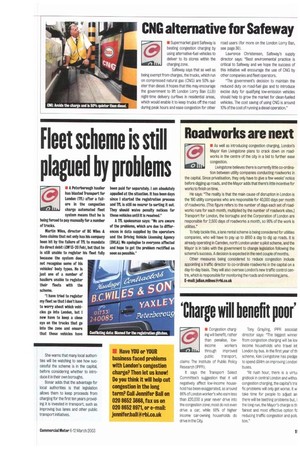'Charge will benefit poor'
Page 15

If you've noticed an error in this article please click here to report it so we can fix it.
• Congestion charging will benefit, rather than penalise, low income workers through improved public transport, claims The Institute of Public Policy Research (IPPR).
It says the Transport Select Committee's suggestion that it will negatively affect low-income household has been exaggerated, as around 86% of London worker's who earn less than 120,000 a year never drive into the congestion zone; most do not even drive a car, while 88% of higher income car-owning households do drive in the City. Tony Grayling, IPPR associat director says: "The biggest winner from congestion charging will be lov income households who travel int London by bus. In the first year of th scheme, Ken Livingstone has pledge to spend £84m on improving London' buses.
"At rush hour. there is a virtu; gridlock in central London and withai congestion charging, the capital's tra tic problems will only get worse. it w take time for people to adjust an there will be teething problems but, i the long run, the Mayor's charge is th fairest and most effective option fo reducing traffic congestion and polk ton."




































































































































































